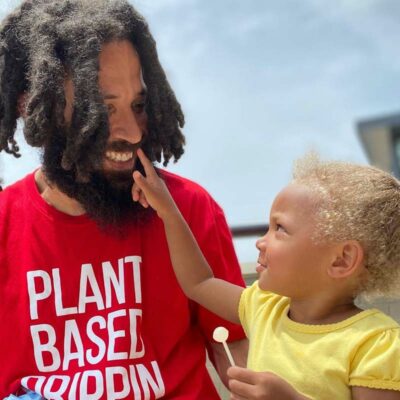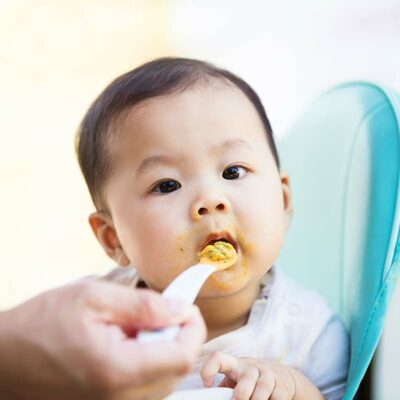Veganism For Pregnancy And Parenting

Deciding whether to raise your children without animal products can be a difficult decision, but we want to reassure you that it is perfectly possible to raise a happy, healthy vegan child, and millions of families around the world are doing just that.
Nutrition experts have no health concerns at all so long as the diet is balanced. Of course, there are other factors to consider, including the practicalities of providing vegan food at school or at friends’ houses, and ensuring that children do not miss out at parties and other important events. There is no doubt there will be some challenges along the way, but that is true of raising children generally!
It is important to remember that almost all children instinctively love animals, and would never want to hurt them. They have a profound sense of justice, understand that causing suffering is not right, and want us all to care for the planet. Plus, setting them up with positive, healthy food patterns early in life is an incredible gift for their future.
PREGNANCY
If you are already eating a balanced plant-based diet, you are unlikely to need to make any significant adjustments to what you eat when pregnant. You may need to eat more calorie-dense foods in the third trimester, as the baby or babies take up more room, making it more difficult to eat full meals. At this time, it is also recommended to slightly increase calorie intake too, so reducing the fiber content and increasing low-fiber, high-energy foods can help.
There are three nutrients to be more aware of during pregnancy. They are: folate, vitamin D, and iodine.
- Folate is found plentifully in many vegetables, including broccoli, Brussels sprouts, and leafy green vegetables, as well as in peas, garbanzo beans, and kidney beans. Since folate is so important for the development of the baby, it is wise to ensure a good supply if planning to get pregnant and during the first 12 weeks.
- Because most of our vitamin D intake is reliant on the sun, it is not always easy to get it right, no matter what diet we eat. The advice is therefore to take a supplement daily when pregnant.
- More iodine is required during pregnancy, and getting a reliable source can be tricky at times. During pregnancy, the simplest option may be to add a daily supplement.
We recommend taking an organic, vegan prenatal vitamin, such as the Mykind Organics Prenatal Multivitamin.



FEEDING
If you’re already supplementing with vitamin B12, iodine, and vitamin D, the advice is to continue to do that throughout breastfeeding, but you should be able to get all the other nutrients you need quite easily on a balanced vegan diet.
Currently, there are no approved 100 percent vegan formulas available for newborns in the United States, but there are nutritionally complete plant-based formulas, with the only non-vegan ingredient being the vitamin D that is derived from lanolin, found in sheep’s wool. This is a good option for parents who don’t wish to, or are unable to, breastfeed, or prefer to do both.
Plant-Based Health Professionals have developed a useful resource about feeding your vegan baby, and we can recommend Alicia Silverstone’s book, The Kind Mama.
Vegan Kids
According to Claire McCarthy, MD, whether you are bringing up your children vegan, or transitioning their diets to a vegan diet, there are two things you need to know more about: calories and protein.
Plant-based foods tend to have fewer calories than animal foods, and children of all ages must get sufficient calories. If they fill up on high-fiber foods, they may become full before they have eaten the calories they need to grow and develop. This doesn’t need to be a problem as we can simply add high-calorie foods like nuts, nut butters, avocadoes, soy products, and granola to their diet.
The amount of protein a child needs depends on their age and size, but their needs can be met with nuts, nut butters, legumes, soy products, and cereals. Research shows that soy protein can meet children’s needs as effectively as animal protein, but it is always best to offer them a variety of protein-rich foods.
Researchers agree that: “A completely plant-based diet is suitable during pregnancy, lactation, infancy, and childhood, provided that it is well-planned.”
Recommended reading: Nourish by Reshma Shah MD and Brenda Davis RD.